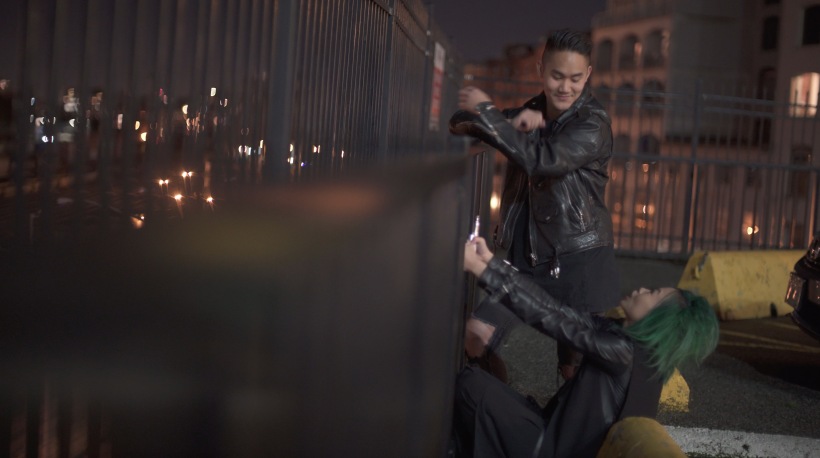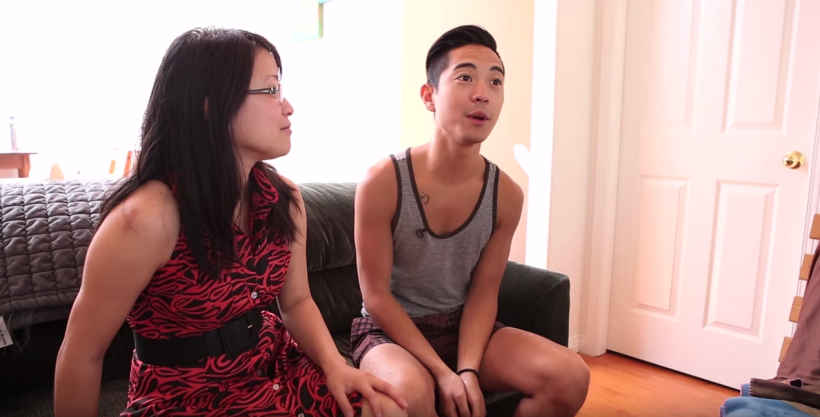This weekend Love Intersections co-hosted the first of two community gatherings called “Done with Diversity: Reframing the future for Indigenous and Racialized Artists”, in collaboration with several Indigenous organizations and other artists of colour, including Full Circle: First Nations Performing Arts, Visceral Visions, co.ERASGA, Vancouver Moving Theatre, Britannia Community Centre, and Rungh Cultural Society. The idea for the gathering grew from Primary Colours/Couleurs primaires, which is a multi-year, Canada wide initiative to decolonize the Canadian arts system, led by Indigenous artists and supported by racialized artists, by centering Indigenous arts practices. The central question we gathered around what “What does a decolonized Canadian arts system look like?”. The two gatherings are funded through the City of Vancouver’s “Host Your Own Engagement” program.

“Done with Diversity” is certainly a loaded phrase – and we deliberately chose it because as racialized artists and artists of colour, we are so fed up with the liberal ways that this idea of “diversity and inclusion” tokenizes us through the narrative of equity and equality, but in reality, the systemic barriers remain in place. We want more than just tokenistic gestures: we want to work towards decolonizing the Canadian arts system (and Canada) through centring Indigenous arts practices. Below are some of my thoughts from conversations at our gathering on Saturday, and some questions that opened up from our conversations.
I left the gathering on Saturday with a deep sense of gratitude to be amongst black, brown, yellow bodies (and allies) in a facilitated space that allowed us to speak, to be present, and to be our whole selves. It was such a power space to be able to talk about the traumas of systemic racism, and the impacts of colonialism to Indigenous communities, in a space that allowed us to be vulnerable, scared, angry, and make mistakes, without fear of retribution.
Several themes emerged from our gathering on Saturday. We talked at length about the need to connect, to have space to share, build solidarity and relationships. To have the time, energy, and resources to work together is deeply impacted by systemic barriers, and is a racialized issue. How can we find ways to get together more, to imagine new possibilities – new worlds – outside of the colonial paradigm?
The notion of relations and relationships was also a key theme that emerged from the discussions on Saturday. Neoliberalism is a deeply pervasive systemic issue, that dictates much of our lives, particularly in the arts community, where values are placed on production (literally). When “what you produce” is the key factor on how artists get rewarded, what other impacts get left out when the metrics are governed by neoliberalism? What happens when we centre right relations, with our communities, with our ancestors, with our future generations?
These ideas and conversations that we had on Saturday are only the beginning of what we hope will be a future of working together towards a decolonized Canadian arts system.











 hile we were both studying at the University of Cape Town, we have become very close friends. Mondes is now living in Pretoria, and I’m back home in Vancouver, but every year or so, we make an effort to meet somewhere “half way” in the world to hang out, and travel together.
hile we were both studying at the University of Cape Town, we have become very close friends. Mondes is now living in Pretoria, and I’m back home in Vancouver, but every year or so, we make an effort to meet somewhere “half way” in the world to hang out, and travel together. David, who I adore, and not just because he always makes me feel so safe, has only confirmed and re-emphasised how difficult it can be for non-white bodies to access spaces of leisure. From sitting in a restaurant in New York and being ignored for a solid 45 minutes until David sat down and a waiter arrived at our side seconds later, to wandering a night market in Bali (which shall henceforth be known as the Night-market of Horror) and being laughed, harassed and jeered at while just desperately clinging to some form of dignity, to the reminder that yes I am a person and I do not deserve to be treated this way. To having those spaces turn threatening and dangerous, which I have never experienced with David, not yet anyway. At home in South Africa while at concerts, restaurants and clubs with other black women I have often been physically threatened and attacked by white men ‘defending’ their girlfriends from the existence of fat black womanhood in spaces they perceive as just their own. I have been spat at, stoned, shoved and punched right in my own back yard because I am a black body ‘trespassing’ where I do not belong and so when it comes to venturing to new shores, particularly knowing and acknowledging that David and I are both highly visible as individuals and even more so as a pair, I do intense research about black and poc experiences of the places we are visiting.
David, who I adore, and not just because he always makes me feel so safe, has only confirmed and re-emphasised how difficult it can be for non-white bodies to access spaces of leisure. From sitting in a restaurant in New York and being ignored for a solid 45 minutes until David sat down and a waiter arrived at our side seconds later, to wandering a night market in Bali (which shall henceforth be known as the Night-market of Horror) and being laughed, harassed and jeered at while just desperately clinging to some form of dignity, to the reminder that yes I am a person and I do not deserve to be treated this way. To having those spaces turn threatening and dangerous, which I have never experienced with David, not yet anyway. At home in South Africa while at concerts, restaurants and clubs with other black women I have often been physically threatened and attacked by white men ‘defending’ their girlfriends from the existence of fat black womanhood in spaces they perceive as just their own. I have been spat at, stoned, shoved and punched right in my own back yard because I am a black body ‘trespassing’ where I do not belong and so when it comes to venturing to new shores, particularly knowing and acknowledging that David and I are both highly visible as individuals and even more so as a pair, I do intense research about black and poc experiences of the places we are visiting.